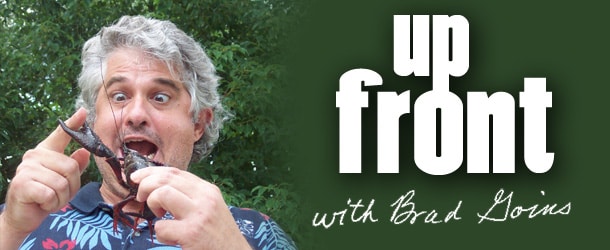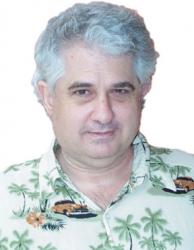Farm owners Andy and Jennifer Graycheck grow an abundant number of sunflowers and zinnias (which thrive in south Louisiana heat) at the Petite Anse Farm in New Iberia. And they invite members of the general public to come to their farm and pick these flowers.
Those who visit are given scissors, a bucket and a list of the species of plants that are there for the picking. Items on the list include Autumn Beauty, plum sunflowers, Oklahoma White zinnia, and baby’s breath.
The Graychecks open their farm seasonally for those who want to pick their own flowers or have photography sessions on the all-organic farm.
The Graychecks live on land adjacent to Jennifer’s grandparents’ property. A landscape architect, Andy Greycheck uses bulldozers to create ponds, irrigate the land and build barriers to flooding. He told Lafayette’s Daily Advertiser he would like “to be a steward of, and practice, conservation.”
In 2020, the couple planted sunflowers to break up compacted soil. Sunflowers are good for this job because they put down such deep roots. “We did not have a vision of starting a pick-your-own farm,” Jennifer said.
It was the COVID lockdown that gave a couple the chance to start thinking about creating a “you-pick” operation.
In pure fact, it wasn’t strictly a you-pick operation at first. Working together as a family, the Graychecks harvested their sunflowers; bundled them; and then sold them. The whole thing was arranged so that people could get their flowers without having physical contact (so that there would be no chance of COVID infection).
Customers started picking their own flowers in spring of 2021. Interestingly enough, the whole affair did not start off as a for-profit business. At first, people could come and pick their fruits and flowers for free. Said Andy, “it was a way to build community and brighten people’s day during such a hard time.”
At present, the couple open the farm to visitors in May and June and then again in the fall. They’ve added new crops to the roster, most recently planting beebalm and wild mustard and planning for pumpkins this fall.
“This has become just a labor of love,” Jennifer told the Advertiser. “It’s definitely all an experiment.”
Their visitors tell them how joyful they are to be outside among the flowers, even when it’s hot, and that the experience is therapeutic.
Fifty miles away, consumers are loading their buckets with blackberries and blueberries grown at the Bien-Aimé Farm in Church Point, which is run by David and Katie Baird.
On the grounds is a rusty old tractor kids can climb and pose on for photos. And everyone can buy snow-cones from the shack where the Bairds make cane syrup. “We try to make [a visit to the property] an experience,” David Baird says.
The Bairds began their “you-pick” experience with the simple act of growing bell peppers in their backyard. In 2020, they moved to a 13-acre lot in Church Point where they started the serious planting.
It will come as no surprise to many that David Baird says that really valuable farming know-how comes mainly through experience, which includes the process of figuring out how to solve problems that arise during the course of farming. “I learned quick that you can buy all the books and read about farming, but nothing takes the place of actually putting your hands in the soil,” he says.
The couple first invited the public to come for you-pick berry days in June. A total of 70 adults and their children showed up for the first event.
The sort of “you-pick” farms I’ve been describing are part of the much-discussed agritourism industry in Southwest Louisiana. The U.S. Travel Assoc. says agritourism is a billion-dollar industry that has created 9 million jobs. And the industry is growing. The U.S. Census of Agriculture says there has also been an increase in recreational services that are somehow related to agrotourism sites.
New Mental Health Resource Guide
Some time ago, the Up Fronter took a look at Southerly — an online periodical that has been running stories on Southwest Louisiana’s recovery from Hurricanes Laura and Delta in every issue.
The stories often focused on the tenuous state of residents’ mental health and their difficulties in obtaining therapy or other care.
Writer Carly Berlin explained that after the hurricanes, it took months for the Kay Doré Counseling Clinic at McNeese State University to reopen. The clinic, which is housed in a trailer, offers low-cost counseling. Its rebuilding has been hindered not just by the hurricanes but also by the February, 2021, ice storm and the surprise flood in May, 2021. Berlin relates that when she visited the clinic in summer of 2021, she saw “boarded up windows and blue tarped-roofs,” along with students going about their business.
Berlin had gone to the Kay Doré clinic to deliver copies of a new mental health resource guide that Southerly had created in collaboration with the clinic.
The resource guide provides current information and statistics about area mental health care. Topics include mental health trends in the Lake Area; phone numbers related to mental health care and hurricane recovery; and places where one can obtain low-cost counseling. Kevin Yaudes, the clinic’s faculty advisor, noted that, “not enough people know that Kay Doré offers $20 flat-rate sessions for all residents of Southwest Louisiana.”
As she was doing the preparation for the guide, said Berlin, “countless people told me about the mental health toll of living through these compounding disasters; losing loved ones to long battles with COVID-19; bunking up with a dozen relatives, with little personal space; struggling to find secure housing or a steady job …”
Berlin found that information on the availability of affordable mental healthcare in the area was hard to get after the storms. For one thing, mental health clinics were themselves recovering from the hurricanes. Some had been obliged to relocate or find new offices. Berlin distributed more guides at such institutions as a legal aid clinic that was helping storm survivors; mental healthcare providers; and the Vessel Project, which gives away guides as it distributes meals.
The Pulitzer Center provided the funding for the project. Southerly sought input from staff at Kay Doré and was assisted by the Imperial Calcasieu Human Services Authority. Much information was obtained from conversations with the people of Southwest Louisiana.
Dance Conservatory Class
The Dance Conservatory of Louisiana is a classical ballet studio that focuses on building strong, healthy and happy dancers. The conservatory offers classes in ballet technique, pointe, tap, strength and conditioning, and modern technique.
Online registration for dancers 3 through 9 years old is available at danceconservatorylouisiana.com. Registration for dancers 10 and older will start soon. Classes begin Sept. 6.
‘Re-Bodying Belonging’ And Other Fun Stuff To Do
Few mid-sized cities are free of the sort of indecipherable mumbo jumbo that academics come up with when they’re trying to sound hip, edgy and too cool for school.
Consider, for instance, the title of an event that took place in Alexandria in June; it was called:
“Stitching the Geopolitical Quilt to Re-Body Belonging: Choreographic Ritual”
Do you understand that language? Do you have any idea what it means? Let’s take “Re-Body Belonging”? Do you know how to do that? How would you set about it? Fact of business, I don’t know how to “Re-Body” anything. And to be brutally honest, I didn’t know until just now that “body” is really a verb.
Materials for the event promised “a free, site-specific offering/shareback to community members to continue in the work of constructing an embodied pathway.” I don’t have the slightest idea how to translate that. What is an “embodied pathway”? Surely it’s not a path made of bodies. Maybe it’s a path that just has a body here and there. Sounds a little freaky to me. And what the hell is “shareback”? Is that what would happen if I said to a guy “Hey, look, I’ve got a pizza. I’m going to share with you and then you share back”? How would that work? Maybe the other guy has the pizza, and he asks me, “Want me to share?” and I say, “Yeah, and I want you to share back, too.” Is he going to know what I mean? If you needed to be reminded that unclear language can make things weird, that ought to do it.
The event that was being promoted was apparently a dance that was performed by A. Ryder Turner and Helanius J. Wilkins. It was sponsored by Alexandria’s Acadiana Gallery.















Comments are closed.